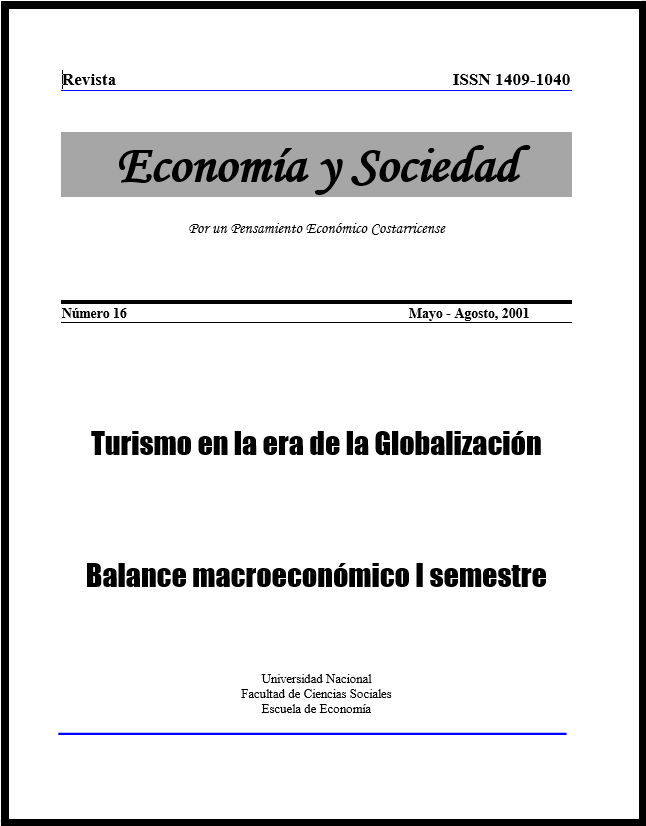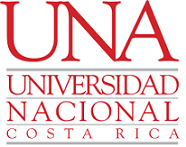CRÉDITO AGROPECUARIO Y SOSTENIBILIDAD DE LA AGRICULTURA
Palavras-chave:
Crédito agropecuario, sostenibilidad, agricultura, productor, consumo.Resumo
El objetivo de este artículo es proveer un marco teórico para la demanda crediticia y uso del crédito por agentes económicos bajo la denominación y conceptualización de hogares finca o productores agropecuarios.
Un enfoque de demanda es seleccionado para identificar la función de demanda de crédito del agricultor, suponiendo un comportamiento de maximización de la utilidad, en lugar de un enfoque basado en consideraciones sobre el prestamista o de oferta de fondos, a saber, costos, riesgos y rendimientos. Estas consideraciones del prestamista obviamente deben ser incorporadas en el análisis, puesto que el acceso observado al crédito es el resultado tanto de consideraciones de demanda como de consideraciones de oferta.
De varias formas, los tópicos cubiertos en este artículo emergen del modelo básico de dos períodos de Fisher,1 con sus bien conocidas relaciones entre precios y producción, acervos fijos de factores productivos, oportunidades de inversión, mercados eficientes de capital y tasas inter-temporales de preferencias. Este modelo explica satisfactoriamente el problema de toma de decisiones que enfrenta el agricultor, un agente económico que es al mismo tiempo productor y consumidor. El modelo aplica también a la toma de decisiones de otras unidades económicas como la pequeña y mediana empresa.
Referências
Adams, Dale W. 1992. “Using contracts to analize informal finance”. Columbus, Ohio. The Ohio State University. ESO No. 1972.
Barnun, H.N. y L. Squire. 1979. A model of an agricultural household: theory and evidence. Baltimore: Hohns Hopkins University Press.
Barry, Peter J. 1984. “The Setting” en Peter J. Barry (ed). Risk Management in Agriculture. Ames, Iowa. Iowa State University Press.
Barry, Peter J. y C.B. Baker. 1984. “Financial response to risk in agriculture” en Peter J. Barry (ed), Risk Management in Agriculture. Ames, Iowa. Iowa State University Press.
Devinney, Timothy M. 1986. Rationing in a Theory of the Banking Firm. Springer-Verlag. Berlin y New York
Feder, G., R. Just y D. Zilberman. 1982. “Adoption of agricultural innovations in developing countries: a survey”. World Bank Staff Working Paper No. 542. Washington, D.C.
Fisher, Irving. 1930. The Theory of Interest. Macmillan Publishing Co. New York
González-Vega, Claudio, Marco A. González-Garita y Ronulfo Jiménez. 1984. “Cuanto cuesta un préstamo agropecuario? Características de la oferta de crédito y costos de endeudamiento en Costa Rica”. San José. Academia de Centroamérica.
Hoff, Karla y Joseph E. Stiglitz. 1993. “Imperfect information and rural credit markets: puzzles and policy perspectives” en The Economics of Rural Organizations, eds. Karla Hoff, Avishay Braverman and Joseph Stiglitz. Oxford: Oxford Press.
Iqbal, Farrukh. 1981. The demand and supply of funds among agricultural households. Ph. D. Disertación. Yale University. New Haven.
Iqbal, Farrukh. 1986. “The demand and supply of funds among agricultural households in India” en Inderjit Singh, Lyn Squire y John Strauss (eds), Agricultural Household Models. Baltimore. The John Hopkins University Press.
Jaffee, Dwight M. 1971. Credit rationing and the commercial loan market. Princeton University. New York y Londres.
Jensen, Michael C. y William Meckling. 1986. “The theory of the firm: managerial behaviour, agency costs and ownership structure”. Journal of Financial Economics. 3.
Keeton, William R. 1979. Equilibrium credit rationing. Garland Publishing Inc. New York y Londres.
McKinnon, Ronald I. 1973. Money and Capital in Economic Development. Brookings Institution. Washington D.C.
Modigliani, Franco. 1980. “The life cycle hypothesis of savings” en Andrew Abel (ed). The Collected Papers of Franco Modigliani. Volume 2. The MIT Press.
Patinkin, Don. 1965. Money, interest and prices. 2ª edición. Harper and Row. New York.
Sonka, Steven T. y George F. Patrick. 1984. “Risk management and decision making in agriculture firms” en Peter J. Barry (ed). Risk Management in Agriculture. Ames, Iowa. Iowa State University Press.
Stiglitz, Joseph E. y Andrew Weiss. 1981. “Credit rationing in markets with imperfect information”. American Economic Review. 71. June, 393-410.
Vogel, Robert C. Y Paul Burkett. 1986. Mobilizing small-scale savings: approaches, costs and benefits. Industry and Finance Series, Volume 15. World Bank. Washington D.C.
Downloads
Publicado
Como Citar
Edição
Seção
Licença
This publication is subject to the Creative Commons License; therefore, its attributions and restrictions must be respected.
Authors publishing in this Journal accept the following conditions:
- Authors retain copyright ownership and give the Journal first publication right of the paper, which is registered with the Creative Commons Attribution-NonCommercial-ShareAlike 4.0 International License. This license allows third parties to use the published work provided it is sourced as firstly published in this Journal.
- Authors may enter into other independent and additional contractual agreements for the non-exclusive distribution of the article published in this Journal (e.g., to be included in an institutional repository or published in a book) provided it is clearly stated that the work was published in this Journal for the first time.
- Authors are allowed and recommended to publish their work on the Internet (for example, on institutional or personal pages) before and during the review and publication process, as it can lead to productive exchanges and a greater and faster dissemination of work published.

The Economía & Sociedad Journal, published by Universidad Nacional, is licensed under a Creative Commons Reconocimiento-NoComercial-CompartirIgual 4.0 Internacional License. Based on http://www.revistas.una.ac.cr/index.php/economia.








